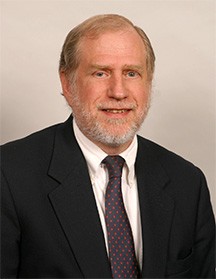Let’s Make a Difference
- Share
- Tweet
- Pin
- Share
This is the first Climate Corner column of 2015. The focus will continue to be on what’s happening, not on whether climate change is real, because there is very little scientific disagreement over the fact that average temperatures are increasing significantly and human activity – primarily emissions of carbon dioxide from burning fossil fuels – is contributing a lot to this problem. More than 97 percent of the peer-reviewed studies on climate change support these conclusions.
While we can’t predict the future with certainty, the many scientific models that project climate impacts provide very strong indications of future problems. It would be incredibly imprudent to ignore this consensus and not act until it is too late to be effective.
We are fortunate that many of the steps we can take have collateral benefits that will improve our lives. Burning less coal will decrease particulates in the air that aggravate respiratory and cardiovascular disease and contribute to lung cancer. It will reduce the mercury that has contaminated our fisheries. It will cut smog that causes acidification of lakes and streams, damaging trees and crops. In other words, we will win even if the overwhelming scientific consensus on global warming is overstated.
The main objection to taking action is cost that may hurt our economy. The same argument was made in opposition to the Clean Air and Water Acts, when the pollution was so bad that the Cuyahoga River near Cleveland caught on fire. There is no question that our air and water are much cleaner today. There was a cost, but the economic calamity predicted by the U.S. Chamber of Commerce and others did not occur. Few today would vote to return to the environmental conditions of the 1970s.
We should recognize that transitioning from coal to much greater use of wind and solar will increase energy costs, at least in the near term. The question is how much. The good news is that the cost of renewable resources has dropped a lot, and is continuing to decline, particularly for solar. However, new commercial, energy storage and power stability technologies will be needed to realize the potential of these resources. Investing in research and development is essential and costs money.
In facing this challenge, it is essential to understand that energy costs for consumers have two components: the cost of energy and the amount of usage. For transportation, when gas approaches $4 a gallon, the benefit of getting 50 MPG is easy to see. Our cars are much more efficient than in the past and continue to get better. This is a big win. Harmful emissions decrease and drivers save money.
This can also be true for the electricity, natural gas and propane we use every day. Even if the cost of energy rises, as is likely with stronger environmental regulations, utility bills can stay flat or go down, if we use less energy. Americans constitute five percent of the world’s population and use more than 20 percent of energy consumed worldwide. We waste a tremendous amount of energy. As a result, we have a lot of opportunities to be more efficient, offsetting the cost of transitioning to a healthier energy system. Simply put, we can act responsibly without causing an economic calamity.
Wisconsin, more than any other state, should make energy efficiency and conservation its top energy policy priority. Wisconsin has no coal, oil or gas. They all must be imported, causing huge amounts of money to flow out-of-state. Lakes on two sides limit our ability to import energy and increase the cost. Our wind resource is mediocre compared to a number of other states, as is our solar potential. The economic imperative to be super efficient is self-evident.
So, there is still time for a few important New Year’s resolutions that will help address climate change and save money at the same time:
1. For your next car, buy a high mileage vehicle, keep your tires inflated, get the excess weight out of the trunk and drive efficiently;
2. Turn your thermostat down two degrees further both night and day;
3. Have a home energy audit and fix the biggest leaks;
4. Replace the lights you use the most with LEDs;
5. Get rid of your second, inefficient refrigerator;
6. Walk and bike more, and consolidate errands by car;
7. Help your employer, church, school and friends save energy;
8. And most importantly, let our politicians know that we want effective bipartisan action on climate change now. It is a betrayal of the public interest to deny science for short-term political gain.
Roy Thilly lives in Baileys Harbor and is a member of the Climate Change Coalition of Door County. He is the former CEO of WPPI Energy, a regional electric utility owned by Sturgeon Bay, Algoma and 49 other communities in Wisconsin, the Upper Peninsula and Iowa. He co-chaired Governor Doyle’s Global Warming Task Force and is a Trustee of the North American Electric Reliability Corporation, which sets and enforces electric reliability standards for, and assesses the reliability of, the bulk power system in the U.S., Canada and a portion of Mexico.
The Climate Corner is a monthly column featuring a variety of writers from around the state and Door County addressing various aspects of the challenges and opportunities climate change presents. The Corner is sponsored by the Climate Change Coalition of Door County, which is dedicated to “helping to keep our planet a cool place to live.” The Coalition is always open to new members and ideas. Contact the Coalition at: [email protected].

